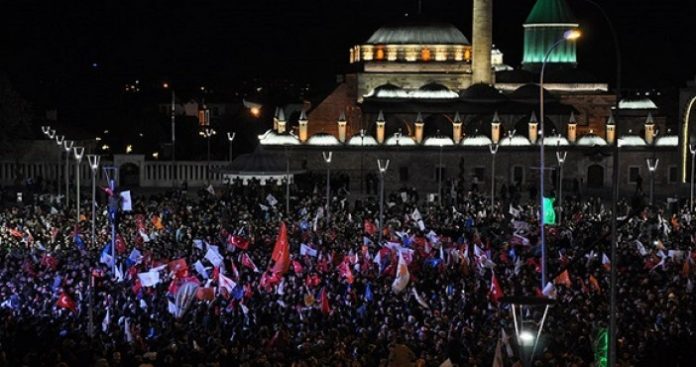Etyen Mahçupyan
The identification of the Justice and Development Party (AK Party) solely with its Islamist label made it difficult to grasp the party's view on Syria. The language President Recep Tayyip Erdoğan employed and the conservative values he openly embraced represented this illusion as a realistic finding. However, the AK Party's Islamism has not gone beyond cultural symbolism for a long time. In other words, Islamism only acts as a moral and normative background that can be relied on at critical moments. The Islamic references AK Party leaders use do not have any function other than to appeal to common emotions and sensitivity of the public. On the other hand, a segment in the AK Party's base wants to exercise this outward practice beyond the party's choices. But, it must be noted that this segment finds the AK Party's Islamic sensitivity insufficient. Consequently, aside from the label of Islamism, how Islamic the AK Party is can be problematized in the world of those defining themselves as Islamists.
Therefore, it is not surprising that only the secular stratum in Turkey gave credence to the speculation suggesting that the AK Party supports DAESH. The conservative segments of society were already aware that the AK Party's actions are directly opposite to those of DAESH. In this scope, Erdoğan's language, which is perceived as Islamist, expressed the compensation of lacking points of the AK Party in the eyes of devoutly religious people. The AK Party also did not discriminate between Sunnis and Shiites in the Middle East, which was not a surprise for religious conservatives although the secular population did not find this attitude believable.
Despite differences in perception, this subject actually reflects one of the policies the AK Party pursues consistently. Turkey does not regard any ethnic, religious or sectarian differences around it as a criterion for political choice. For a while, we have seen an administration behaving in a much more pragmatic state mentally. Frankly, Turkey has not reached this point thanks to its own idealism or normative perspective. Let's not be unfair, the AK Party governments have always remained at a close proximity to an all-encompassing and responsible approach regarding the country's natural regional hinterland, reminiscing about the Ottoman Empire's spiritual legacy. But the critical threshold was a positive leap and the introduction of a new phase in relations with Iraqi Kurdistan. Thanks to this development, Turkey discovered that the Iraqi Kurds, who it previously approached with conventional state skepticism, were the country's most trustworthy ally in the region.
The following mental initiative implies that sectarian diversity can also be secondary just like ethnic diversity. The shift of meaning attributed to Turkmens by the AK Party and Islamic base was achieved this way. During the first years of its rule, the AK Party tried to display closeness to Turkmens, but the motivation for this was the AK Party's concerns of sustaining conventional state policy and preserving its bargain power in hand. After all, the Turkmens are Turkish too and nearly half of them are Shiite. However, in the time after Kurdistan Regional Government (KRG) President Masoud Barzani, the AK Party came to have a more eased point of view. Today, the main question is not identity, but geographical proximity to Turkey. For this reason, Turkmens are supported and cooperation with the Syrian Kurdish Democratic Union Party (PYD) is avoided since it cooperates with the outlawed PKK and pursues policies favoring Syrian President Bashar Assad and Iran, rather than Turkey.
It would be useful to add one more factor. Turkey sides with a multicultural Middle East in terms of ethnicity and sect. The country needs that in order to maximize its influence. Consequently, it regards every political movement leaning toward mono-culturalism, such as the PYD, as a threat. When the conditions are considered, this point of view is likely to be maintained in Turkey's foreign policy for a long time.


